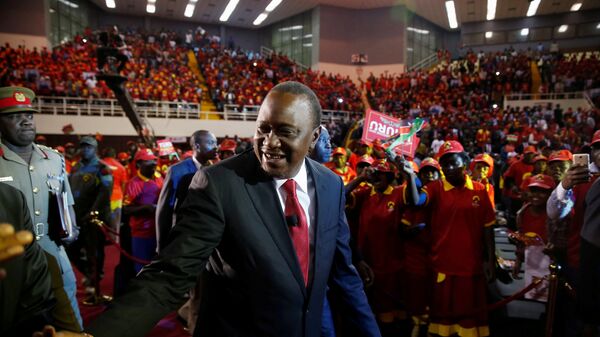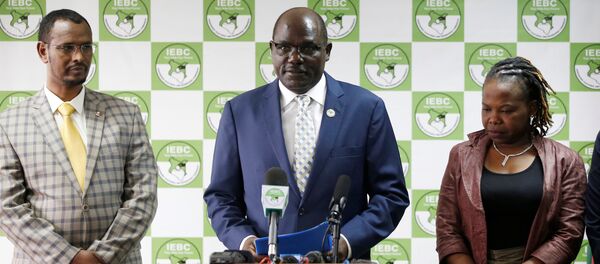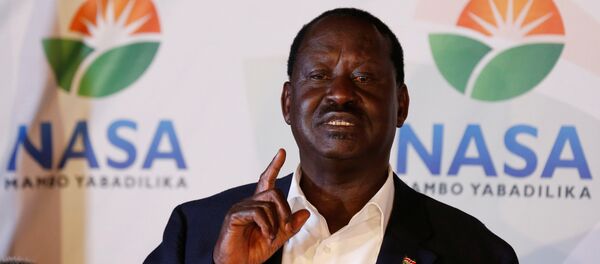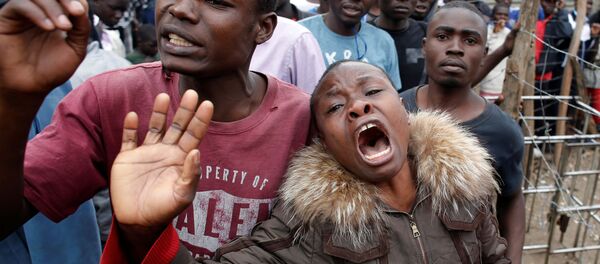The petition was filed by Harun Mwau, a former parliamentarian who claims that the Nairobi government also tried to suppress his attempts to file the petition with the Supreme Court.
In August 2017, the incumbent Kenyatta defeated challenger Raila Odinga, gaining about 54 percent of the vote in the process. Odinga argued that the election results had been tampered with by (probably not Russian) hackers and that Kenyatta stole the election.
Odinga challenged Kenyatta's victory in the Supreme Court, which agreed with his charge that corruption in Kenya's Independent Electoral & Boundaries Commission (IEBC) may have led to rigging of the election in Kenyatta's favor. They ruled for a recount election to occur on October 26.
However, Odinga withdrew from the election in early October, arguing that there was no guarantee of a fair election the second time through since no reforms had been made to the electoral process or the IEBC. Essentially running unopposed, Kenyatta won with more than 98 percent of the vote — but voter turnout for the recount election was just over half as high as for the first.
Both elections were marred by violence, particularly the second, as police reportedly opened fire on protesters in some cities and killed dozens. There were also reports of voter intimidation.
Just as with the first election, the legitimacy of Kenyatta's second victory has been challenged in the Supreme Court. The seven judges have two weeks to rule on whether or not the election results were legitimate. If they find the second election also illegitimate, then a third recount election will have to be held within 60 days of the ruling.
Kenya is no stranger to controversial and even violent elections — the country nearly spiraled into civil war after a heated 2007 contest between Odinga and incumbent Mwai Kibaki, and post-election fighting led to over 1,000 deaths. However, the 2017 recount election was the first ever in the country's young democracy, seen by international monitors as one of the most robust on the continent.
"The legal situation is unclear," said Kenyan attorney Charles Kanjama to Bloomberg. "These are matters that have not been determined before. It can go either way."
Uhuru Kenyatta is the son of Jomo Kenyatta, the leader of the Kenyan independence movement in the 1960s and the country's autocratic president from 1963 until his death in 1978. While the younger Kenyatta has proven himself to be a skillful diplomat since his ascension in 2013, his administration has also been embroiled in accusations of corruption.
The controversial Odinga was one of the leaders in democratizing Kenya in 1992, and has served in the government ever since. His apex came in 2008 when he became prime minister, but despite numerous attempts he has never captured the presidency. He also lost to Kenyatta in the 2013 election.





